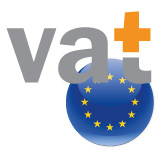amavat | VAT Reporting Guide
Where your business is registered for VAT, your business will need to ensure that it is complying with local VAT reporting obligations.

VAT Returns
Once your business is registered for VAT in an EU country, your will require to submit regular VAT returns to the suitable local tax authority. VAT reporting rules differ among EU countries, so in order avoid penalties and punishments being levied for non-compliance, it is vital that you are fully aware of the rules for each country in which you are trading.
In order to fulfil your local VAT compliance obligations, you will require to:
- Make sure sales invoices act in accordance with with local guidelines;
- Report sales and purchases on your VAT return with applicable local VAT treatment;
- Communicate with the local tax authority in response to questions regarding your ongoing business activity;
- Make suitable payments to local country tax authorities where VAT is owed, and
- Create local bank accounts to make/receive payments in countries where a local account is mandatory.
The Frequency of Filing
Typical filing frequencies for VAT returns differ between countries; you might require to file monthly, quarterly, bi-annually and/or annually. Additionally, frequencies might be subject to alterations depending on a number of factors containing turnover, and whether you are in a payment or repayment position with the tax authorities. It is critical that you appreciate local VAT legislation to make sure you are filing properly. Again additionally, some countries offer the opportunity to propose preferred filing frequencies, which may possibly develop better cash-flow for your business where you are retrieving local VAT through the return.
Are Your Invoice Compliant?
It is imperative that when making supplies you are mindful of the right liability on your invoices to avoid mistakenly charging VAT to your clients, which repeatedly causes cash-flow problems if invoices are potentially disputed. Additionally, if you receive invoices with VAT, it is vital you are confident that the VAT was charged to you appropriately – if you pay VAT that was wrongly charged, it might be challenging to recover.
You should consider the following:
- Your customers information;
- Supplier information;
- Transaction details;
- Any exemptions; and
- The Reverse Charge.
Payment to the Tax Authorities Payments
Periodically VAT inspections can be carried out at the discretion of the tax authorities. It is vital to make sure that your company is conforming to local VAT obligations to ensure no risks of fines and penalties.
Intrastat Reporting
For businesses that trade across EU borders Intrastat reporting is a requirement. This reporting monitors the movement of goods between EU countries and the data collected allows EU Member States to accumulate significant trade statistics to monitor cross-border transactions.
To ensure your company is getting Intrastat reporting correct you should:
- Assess your international trade and ascertain where you need to file Intrastat reports;
- There are two kinds of Intrastat reports: ‘Arrivals’ and ‘Dispatches’ – you should make sure you are aware of which reports you are required to file;
- It is also very important that commodity codes are used in your reports and are indeed correct, so amavat® recommends that you review your supplies to identify the correct codes; and
- The information which is necessary for Intrastat reporting varies between EU countries, information necessary for reporting may contain information such as:
- The means in which you transported the goods;
- Also the nature of transaction; and
- The exchange rates.
EC Sales Lists
If you company is a trading EU VAT-registered with other VAT registered companies throughout the EU, it might be required for you to produce regular EC Sales Lists to report the value of sales being made. These reports make available to the tax authorities vital information to make sure VAT is being suitably accounted by businesses trading cross-border. Which is nothing like Intrastat reports, these monitor the movement of goods only, EC Sales Lists report ‘the supply of services’ that have been made cross-border, as well as all goods.
To ensure your company is getting EC Sales Lists correct you should:
- Assess your international trade and find where you require to file EC Sales List reports;
- Show the value of your trade on your EC Sales Lists within the EU to individual VAT numbers, so very important that VAT numbers you use are correct;
- Know that EC Sales reports differ between EU countries – you might be required to report only sales, but in some countries purchases will also require to be included; and
- Make sure your reports include the value of transactions relating to goods and services, and that they are broken down and the net values reported.
Why not let amavat® look after all of the above for you? While you concentrate on your core business.





